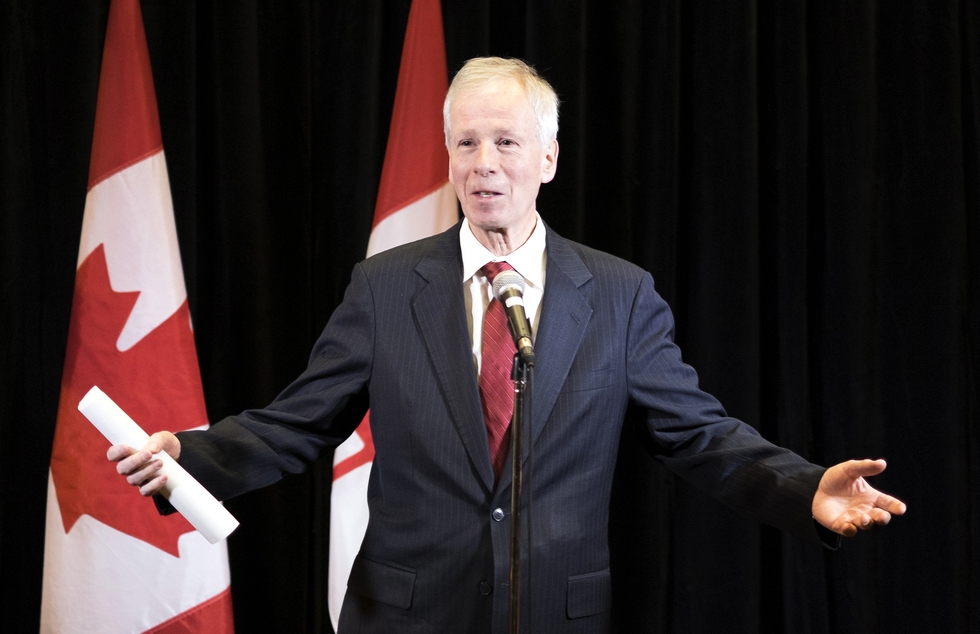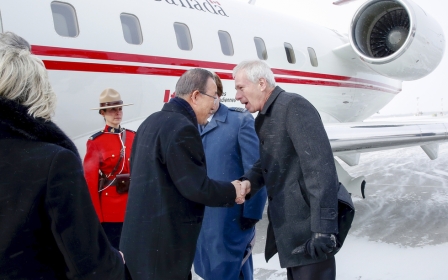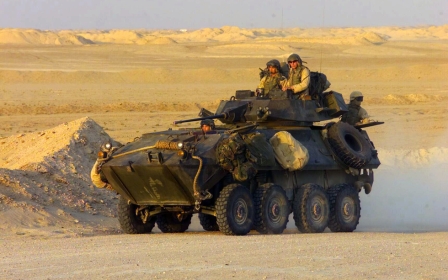Canada to join torture prevention protocol

TORONTO, Canada - Activists and torture survivors have welcomed Canada’s announcement that it will sign onto the United Nations’ optional protocol against torture, but they say it is only a first step to ending torture and degrading treatment worldwide.
“Having expert UN investigators poke and prod in jails in those countries is an absolutely essential step in helping to end torture,” said Alex Neve, director of Amnesty International Canada, at a press conference on Tuesday.
“Once Canada is on board, we can at long last push those other countries to follow suit.”
Canadian Foreign Minister Stephane Dion announced that Canada should sign onto the optional protocol to the UN Convention Against Torture this week.
“The Optional Protocol is an important agreement in helping to ensure that international agreements to prohibit torture are enforceable and that governments are held to account for their actions,” Tania Assaly, a spokesperson for Global Affairs Canada, told Middle East Eye in an emailed statement.
The optional protocol establishes independent bodies to conduct regular visits to detention facilities with the goal of preventing torture and other cruel treatment.
Signatories also commit to allowing inspections at detention facilities under its control (or which deprive individuals of their liberty with the state’s consent) and establishing a preventive body to prevent torture domestically.
The UN adopted the optional protocol in 2002, and it came into force in 2006. Canada’s previous Conservative government, headed by Stephen Harper, twice promised to sign it, but never did.
Assaly said the government was in the process of consulting with federal departments that would be affected by the protocol. Ottawa then plans to consult with provincial and territorial governments across the country.
Torture victims applaud decision
Kuwaiti-born Canadian Naser al-Raas welcomed the government’s announcement, saying that the optional protocol is crucial because it is “about abolishing torture as a whole process” and “about preventing, more than healing, the wounds”.
“I was surprised because it came after 13 years of continuous calls … for Canada to join the optional protocol,” al-Raas told MEE. “It’s great news for everyone.”
Al-Raas was detained for a year in Bahrain after attending pro-democracy protests that swept the Gulf nation in 2011. He was imprisoned several times, and he was subjected to 31 days of torture, including electrocutions, beatings and mock executions. He was also not allowed to receive medication, he said.
Al-Raas is disabled, and he uses a wheelchair. He requires a constant flow of oxygen and will undergo heart and lung transplants in the near future. He said his health problems today stem from the torture he experienced in Bahrain.
“The electrocution, the electric shock, that I went through did the most damage to my muscles,” he told MEE. “But I am strong.”
Abdullah al-Malki, a Syrian-Canadian who was detained and tortured in 2002 in Syria, called Canada’s move to join the optional protocol “a positive, very important and needed step”.
Al-Malki is currently suing the Canadian government for $100 million for its role in his arrest and detention in Syria, where he was held for two years and subjected to various types of torture and mistreatment.
A commission of inquiry into the arrest and detention of three men - al-Malki, Ahmad Abou-Elmaati and Muayyed Nureddin - found that Canadian officials indirectly contributed to al-Malki’s mistreatment.
The Royal Canadian Mounted Police (RCMP) shared information with US agencies and sent Syrian officials questions to ask al-Malki while in detention, retired Supreme Court Justice Frank Iacobucci wrote in his report.
A parliamentary commission also advised Ottawa in 2009 to apologise to al-Malki, Abou-Elmaati and Nureddin, correct any misinformation related to their detention, and pay compensation “for the suffering they endured and the difficulties they encountered”.
“Canada must demand other countries open up their detention facilities for regular inspection visits,” al-Malki said on Tuesday. “Canada can be a new dawn to the elimination of torture around the world.”
‘History in the making’
“History in [the] making in Ottawa,” tweeted Mohamed Fahmy after news of the government’s decision broke on Monday.
An Egyptian-Canadian, Fahmy was the Cairo bureau chief for Al Jazeera English when he was arrested alongside two colleagues in 2013. He spent more than 400 days in prison on terrorism-related charges that were widely denounced as fabricated.
Fahmy returned to Canada last December after receiving a pardon from Egyptian President Abdel Fattah al-Sisi.
Activists, including several wearing black blindfolds tied around their eyes, rallied on Parliament Hill on Tuesday to call on Canada to stop torture abroad.
Ensaf Haidar, the wife of jailed Saudi blogger Raif Badawi, and her son, also joined the protest in Ottawa.
For al-Raas, joining the optional protocol also signals that Canada will be a positive force to stop torture around the world.
“The main power for torturers is their secrecy. We’re trying to expose them in Canada and internationally,” he told MEE. “Canada is showing all governments how they’re engaged now on an international level in preventing torture.”
Middle East Eye propose une couverture et une analyse indépendantes et incomparables du Moyen-Orient, de l’Afrique du Nord et d’autres régions du monde. Pour en savoir plus sur la reprise de ce contenu et les frais qui s’appliquent, veuillez remplir ce formulaire [en anglais]. Pour en savoir plus sur MEE, cliquez ici [en anglais].




